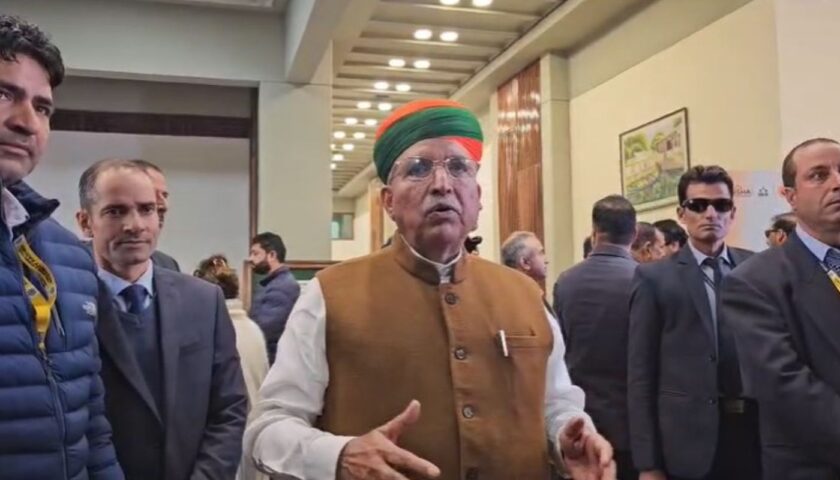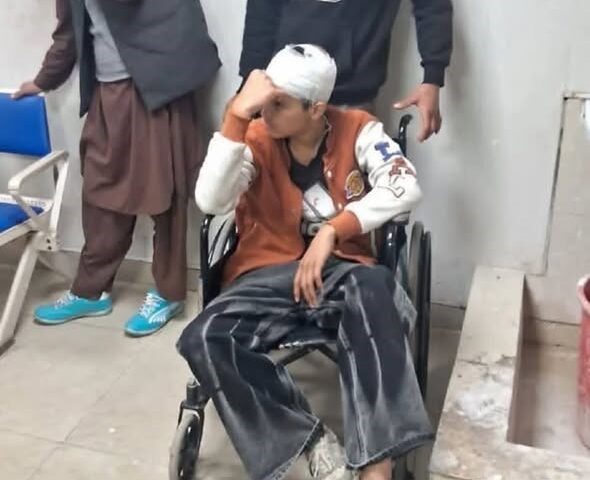The enormously influential but banned Jamaat-e-Islami (JeI-JK), a socio-religious political party that has affected the discourse in the Kashmir Valley for the past several decades, has said that it is ready to return to the electoral mainstream in the state if the ban imposed on it is lifted, Ghulam Qadir Lone, a senior member of the party, has told.
In an exclusive interview, Lone, who is senior member of the party’s “organisational affairs” panel, said that at a meeting of the panel on June 30, it was decided that the Jamaat-e-Islami (JK) would return to politics. Moreover, the panel also decided that its “doors are open to everyone.”
However, he cautioned that this proposed return to normalcy could only happen if the ban, imposed on the party since February 2019 and extended this January for another five years, was lifted. At the time, the Centre had said that the outfit was continuing its “activities against the security, integrity and sovereignty of the nation.”
Lone said they “want to serve the people” and don’t consider any political party their rival. “When the country and Constitution is one, what is the harm in opening the door for any political party?” he said.
The Jamaat has always been known to be inclined towards Pakistan and has followed Jamaat-e-Islami Pakistan rather than Jamaat-i-Islami India. The fact that it is now stating its willingness to join the political mainstream indicates that it is in touch with the Central government. This could, however, invite threats from militants and hardline elements.
Moreover, the fact that JEI members are now being allowed by the party as well as by the Valley authorities to talk to the media is significant — an indication that the authorities are testing the behaviour of the banned outfit.
Asked if they were in touch with the “authorities in Delhi,” a second JEI member, who spoke on the condition of anonymity, said the party, indeed, was in touch with some officials, but “the process was slow…“We are not at the level (of negotiations) what we are expecting,” the member said, adding that only one JEI leader had been released recently and several other leaders continued to be behind the bars.
In the recent Lok Sabha elections in Jammu & Kashmir, to the surprise of everyone, Jamaat-e-Islami’s leaders had come forward to cast their vote for the first time since 1987. Back then, the outfit had contested the elections under the banner of the Muslim United Front (MUF), a conglomerate of political parties, social groups and individuals. After allegations of rigging, the cadre-base outfit had decided to stay away from elections.
Founded in 1943, the JEI is the only cadre-based party in Jammu & Kashmir, besides the National Conference.
According to panel members, the JEI now wants to restore the party’s position in the state to what it was prior to 1987.
“There are a number of reasons why we want to rejoin politics and once again become a normal political party. One of them is that several families, which are victims of the turmoil of these past many years, came to us and told us how their lives had changed and become much more difficult,” said a member. “They wanted us to do something for them and we chose this option.”
The panel members also maintain that they have followed the “peaceful and democratic” process but were dragged into the militancy in 1990 “by circumstances of the time.” In 1990, the Kashmir Valley’s largest militant outfit, Hizbul Mujahideen, had claimed it was the armed wing of the Jamaat.
The JEI member also claimed that 97 per cent of the cadre supported the decision to return to politics.
“There are five people who were against this…so all of them were suspended,” said the panel member, adding the party had at the moment a registered membership of around 18,000-20,000.
Political experts in the Valley, however, say even if the ban is lifted and the JEI contests elections, the party is unlikely to become a major force in the Valley.
“You may see fragmentation (of votes) happening, but I don’t see it (JEI) creating a significant impact in the polls,” Srinagar-based political commentator Noor Baba told. “Even if they contest elections, there will be a number of questions. Even within the cadres, there will be a lot of reluctance about this decision (to get into politics again).”




